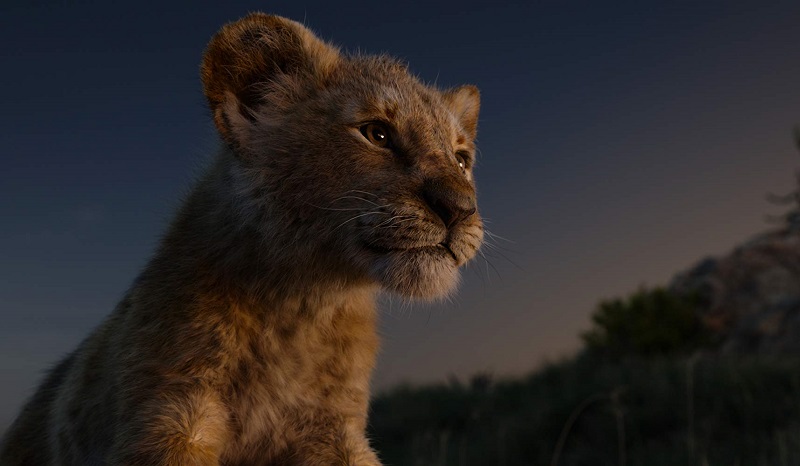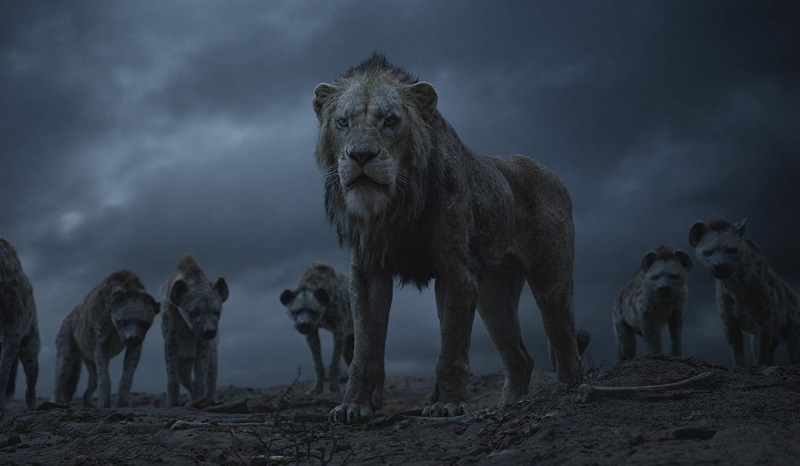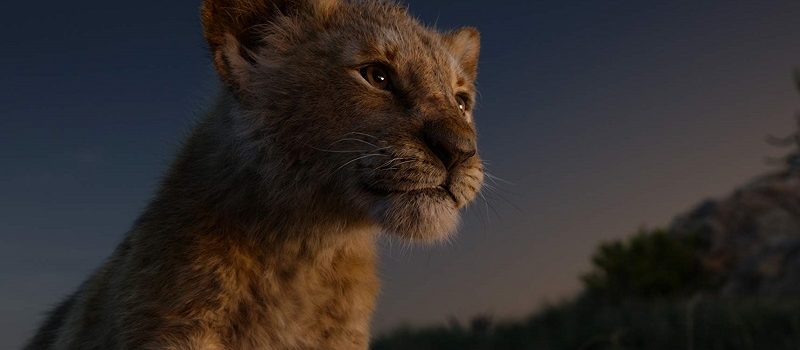The Lion King landed in 1994 and became a cultural sensation. Disney Animation had cemented its comeback with the Oscar winning musical gem that even had some Academy members seeing the film worthy of a Best Picture nomination in addition to its Best Animated Feature one. Of all the Disney animated flicks getting the live action treatment in the last several years—and into the future with Mulan and others—it seems the least worthy of a redo.

That has nothing to do with its quality, which we’ve established here and of course through history. It’s not that remaking an iconic movie is a bad idea, some actually turn out from good to great. My reasoning for why The Lion King 2019 was never needed has to do with the fact that from the songs, quotable lines to its emotional power and inspirational core, The Ling King 1994 is a perfect movie. I’m all over a remake if it improves on things the first flick failed to score with or takes a story that fell flat on its face upon release and give it the script doctor workout and see if you have something.
The Lion King is practically a shot-for-shot redo and extraordinarily shows us how far CG animal animation has come. It is a technical and scientific marvel to behold, but something in that realm needs some serious work. As much as a talking lion walking through the Serengeti with his equally loquacious meercat and wild boar pals is absolutely incredible to witness—especially when this guy started watching movies as a kid and these kinds of effects felt more ventriloquism than visual vanguard—there is something to be said about the need for characters who can emit an entire scene’s emotional rolling nature. As much as the hair on the lions’ neck subtly dances in the wind as the sun’s rays illuminate Simba’s eyes. Now, as the camera pulls back on that shot and we get the entirety of the facial expression from our adorable lion cub, the less the weight that is transcended to the audience from the actors. It’s like watching a movie where all the characters have just had Botox.
The voice cast is sublime. James Earl Jones was born to be Mufasa and tapping him to return to the role seems like a no-brainer, but you never known in Hollywood. Zazu, the bird—who is a jungle royal’s most loyal subject—finds late night political commentator/humorist John Oliver grabbing us by the lapels from the first scene he’s in. JD McCrary’s owns young Simba in a way that had us utterly lost in his characterization and wondering how Donald Glover could possibly match the young talent—including his mesmerizing singing vocal prowess. Keegan-Michael Key’s Kamari and Eric Andre’s Azizi are a one-two punch of hyena awesomeness. Their laugh-out-loud producing prowess is right up there with a pair that many are saying stole the movie—Seth Rogan as Pumbaa and Billy Eichner as Timon. They are incredible and how knew that Eichner had such a nice singing voice. And if that legendary Rogan laugh is not perfect for an African Wild Hog, I don’t know what is …
The leads all emit power in a way that is downright seismic. Donald Glover brings nuances to Simba that one never new existed and in hindsight, it makes you come to the realization that the former Community star is just scratching the surface of his talent. Beyonce brings the brilliance (when has she not, I mean really people) to Nala, the lioness who Simba only has eyes for—and the feeling’s mutual. She’s such an integral character to the entire arc of the film, that is something I either forgot or never noticed in the original. Or, it could just be that ole Beyonce effect! Scar has always been, for me, one of the more sinister of Disney animation villains and in the hands of titanic thespian talent Chiwetel Ejiofor is a sight to behold. His Scar is as menacing as a Mouse House villain needs to be, but also can flip the switch and be the caring, “cool” uncle to Simba that the family lineage dictates should be there. Of course, it he’s being nice to Simba, one must immediately start a search for that other shoe to drop!

In this case, lumping the director with the stars in our critique is impeccably apt. Jon Favreau is as much a star of this film as Ejiofor or Jones. What the filmmaker did with Disney’s The Jungle Book animation to live action remake he too does with The Lion King… visually. He has become quite the storyteller over the years—from Iron Man to Chef. He can do big budget. He can do small budget. It’s been such a joy to witness the evolution of Favreau, who is still an in-demand actor—most recently seen as Happy in Spider-Man: Far From Home. Thinking about all the director had to do to even just film, literally film, this flick is mind blowing. One-hundred percent of the characters are created on a computer, yet everything we see in every single shot was show on location. There’s planning, and then there is what Favreau had to do to expertly bring The Lion King to life.
The fault with the film is not Favreau’s to bear. It’s no one’s really. The thing is emotion connects audience to those crafting a world on the screen. When the players deliver the lines that have all the juice needed to grab out hearts and go for that ride, we all love so much, it lands on deaf ears. The issue lies in the fact that the tech isn’t quite there for Favreau. Animated characters (i.e. the 1994 version) gave us layers of facial gesture richness, whereas the souls in the 2019 remake are flat, and frankly, soulless.
Grade: B-

